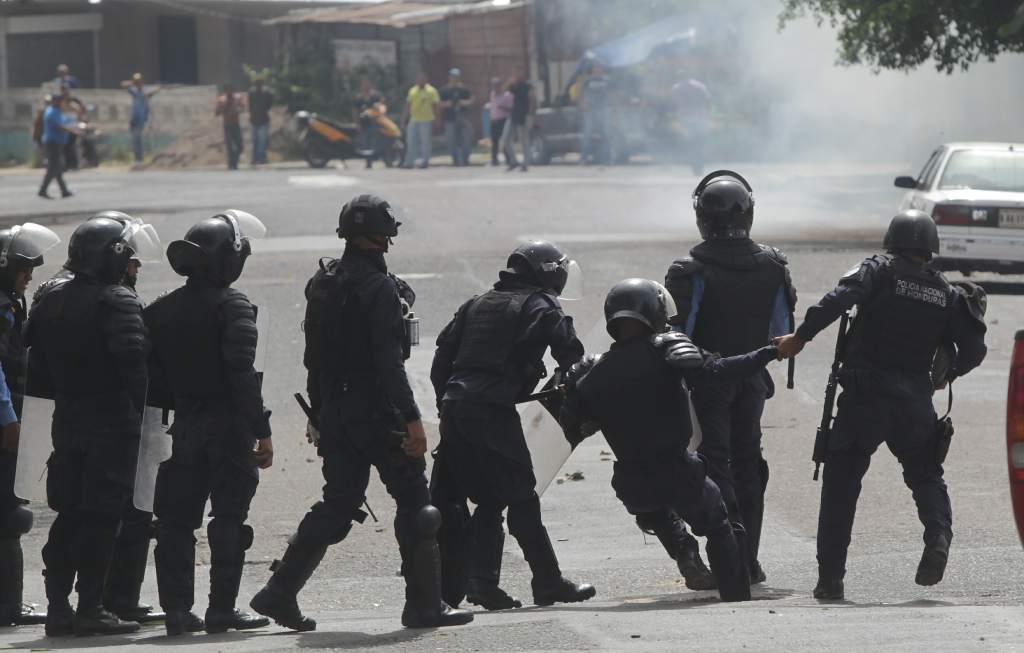Since Thursday, July 19, the transportation sector in Honduras has been on a general strike following an increase in fuel prices. The strike was called after the transportation guild pointed out that operating services (buses services, taxis and cargo transportation) had become unsustainable. The strike has left Honduras at a standstill with the government suspending school and university classes.
The transportation guild, however, has not demanded a rise in fares. Instead, it has sought that the fuel prices be reduced so that the Honduran people do not suffer. They highlighted the fact that the government earns nearly US $600 million a year from taxes on fuel and pointed out that the Honduran Institute of Ground Transportation does not reveal the formula they use to calculate the fuel prices and this allows for tremendous earnings by the government. This demand by the sector has broadened the popular support for the strike.
The transportation sector is demanding that the government lower the fuel price by 23 lempiras/gallon, which is just around USD$1. The government, on the other hand, is willing to reduce prices by only 2 lempiras, which is around USD $0.08. An agreement is yet to be reached.
Honduras is currently facing a governance crisis. In November 2017, elections were held during which in violation of the constitution, the incumbent President Juan Orlando Hernández (JOH) contested again and was ‘re-elected’ through blatant electoral fraud. Hondurans across the country participated in massive mobilizations, road blockades, rallies and other actions for weeks until late January when JOH took office. In June, the Pandora case came to light in which 37 former and current members of Congress were accused of diverting public funds for political campaigns and of receiving money from drug traffickers. The first arrests in this case were carried out today.
These events have created an extremely high level of dissatisfaction and distrust in the government and its institutions and have further angered the people of the country which already suffered a coup d’etat in 2009 and is already stricken with extreme levels of violence and repression. Social movements hope that the transportation strike can spill over and will reflect this widespread unrest in the country.
Other social sectors have already begun to support the transportation strike. In Tegucigalpa for example, students from the National Autonomous University of Honduras have been mobilizing since Thursday in support of the strike and have also been highlighting other aspects of the crisis in sectors such as higher education and the electoral fraud. The protests across the country have been met with heavy repression by the police and military forces and has left dozens injured. Some of the road blockades have been violently removed by the Public Forces.
Meanwhile, the mainstream media in the country sought to portray the protests as an attempt by the transportation sector to harm the people. They sought to do this by selectively interviewing those who were bearing the brunt of the inconvenience. However, these attempts backfired with several interviewees who had been waiting for transport for hours commenting that they not only supported the strike but that it was worth the wait to take a stand against the JOH government.





